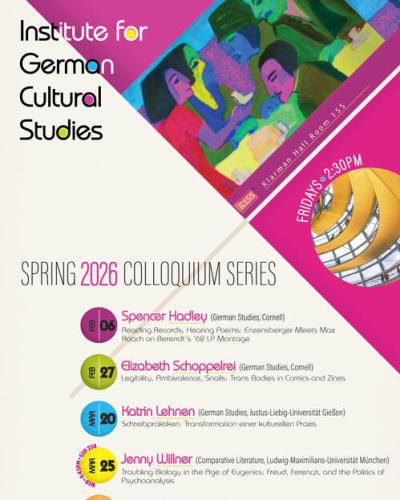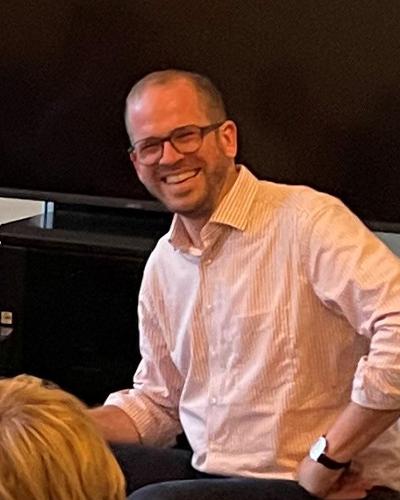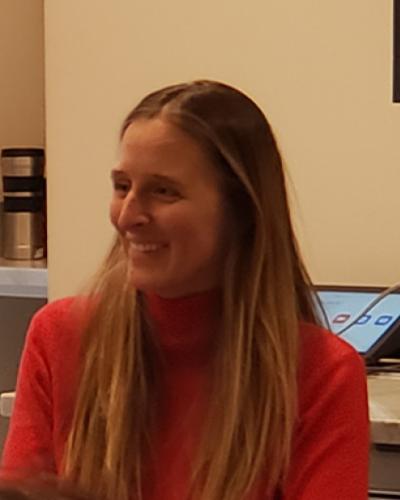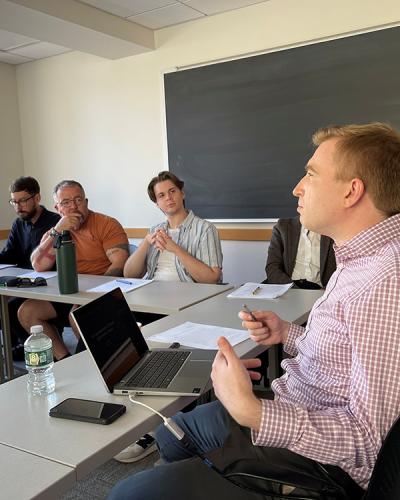On February 16, 2018, Professor Michel Chaouli (University of Indiana, Bloomington) gave a colloquium entitled ''The Truth Told Urgently: Finding the Voice of the Humanities.'' Chaouli is currently an Einstein Foundation Visiting Fellow at the Freie Universität where he holds a three-year tenure with the Friedrich Schlegel Graduate School. Attempting to build on his two published books, The Laboratory of Poetry: Chemistry and Poetics in the Work of Friedrich Schlegel (2002) and Thinking With Kant's Critique of Judgment (2017), Chaouli presented a paper that is part of an ongoing book project entitled The Shape of Poetic Criticism. At its center, he seeks to confront foundational questions that sit at the intersection between aesthetic judgment, poetic potential and literary criticism. His research project at the Freie Universität titled '”The Philological Laboratory: Models of Criticism Beyond Critique” will also address these questions.
Chaouli is interested in the shortcomings of criticism. He approaches literary texts, including their formal features and historical contexts, by seeking to find a path that critically engages literary objects while skirting rigid models of criticism. The concern of his current project can be formulated as ''encountering poetry with poetry.'' This methodology offers new perspectives that allow critics to include personal, ''poetic'' statements that run counter to the more impersonal, “objective” approach to criticism.
Beginning with conceptions of the poetic that stem from the German tradition of Romanticism (especially Friedrich Schlegel), Chaouli seeks a radical return to an expansion of the conception of the poetic outside the domain of poetry itself. These blurred boundaries between what classifies as poetry, criticism, and literature as such, paired with the focus on the poetic as a site of inevitable personal intervention opened up questions concerning the reader’s vulnerability. Chaouli is concerned with how the self is at stake in an aesthetic encounter with literature, and how that personal vulnerability can be manifest in a productive and unique critical approach to the text. This focus on vulnerability provided the most central and intense source of debate throughout the colloquium, which addressed questions of privilege, feminist perspectives, and how Chaouli himself conceived of such an attitude of vulnerability. This tie to the personal and poetic as criticism also brought up questions pertaining to style and tone, as well as to voice and subjectivism with respect to individual experiences of art objects. Chaouli’s stylistic approach called for greater creative freedom in literary criticism. He stressed the importance of particularity throughout and confirmed his literary passion and intensive interest in staying close to texts while conducting criticism.
Much of the lively debate centered on the validity of prescriptive and descriptive conceptions of criticism and what such criticism actually can, and should be asked to do. The answers to these questions may well hinge on the role that the ''I'' of the critic plays in criticism. Chaouli acknowledged the difficulty of this problem, stating that the “I” is the most difficult voice to get right. (Daniel Binswanger Friedman)




